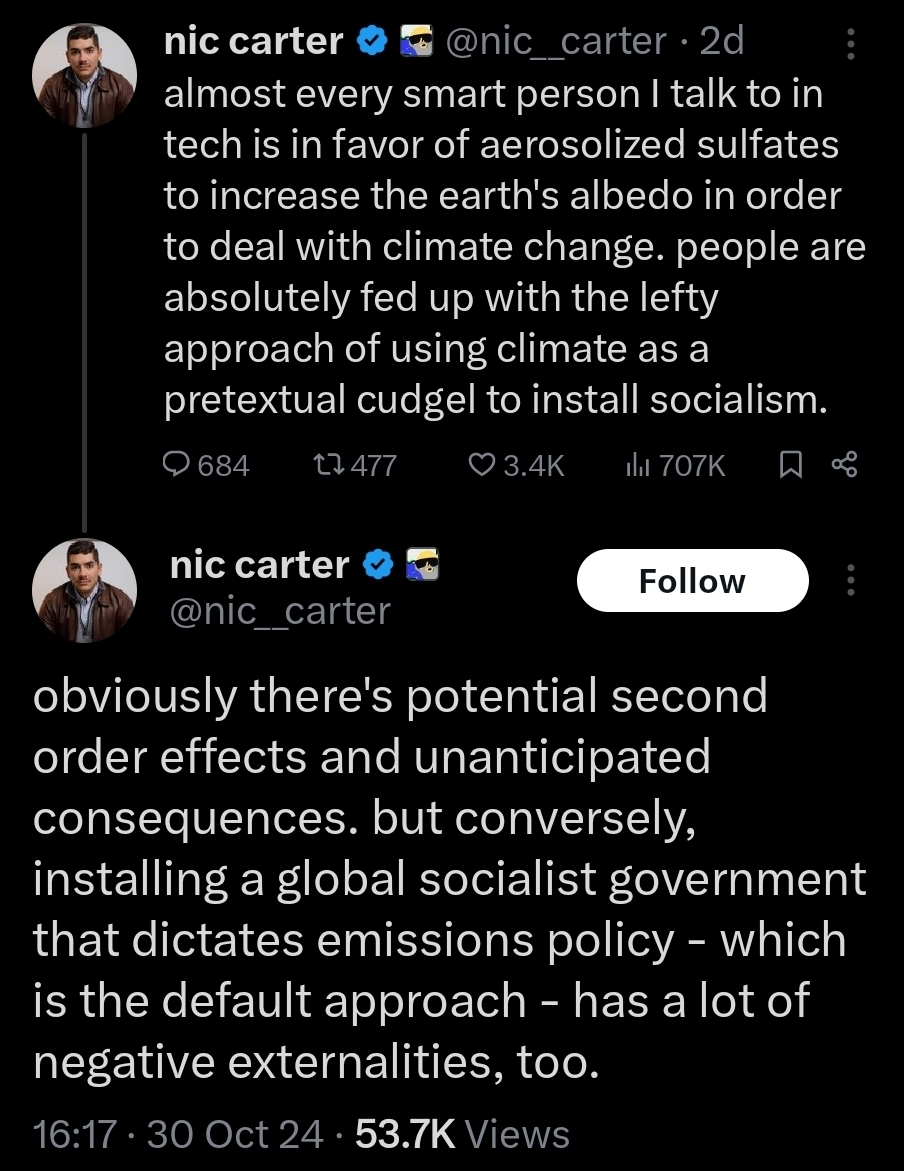the_dunk_tank
It's the dunk tank.
This is where you come to post big-brained hot takes by chuds, libs, or even fellow leftists, and tear them to itty-bitty pieces with precision dunkstrikes.
Rule 1: All posts must include links to the subject matter, and no identifying information should be redacted.
Rule 2: If your source is a reactionary website, please use archive.is instead of linking directly.
Rule 3: No sectarianism.
Rule 4: TERF/SWERFs Not Welcome
Rule 5: No ableism of any kind (that includes stuff like libt*rd)
Rule 6: Do not post fellow hexbears.
Rule 7: Do not individually target other instances' admins or moderators.
Rule 8: The subject of a post cannot be low hanging fruit, that is comments/posts made by a private person that have low amount of upvotes/likes/views. Comments/Posts made on other instances that are accessible from hexbear are an exception to this. Posts that do not meet this requirement can be posted to !shitreactionariessay@lemmygrad.ml
Rule 9: if you post ironic rage bait im going to make a personal visit to your house to make sure you never make this mistake again
view the rest of the comments

What is the mechanism for this?
Shifting precipitation patterns.
Drought in moist regions, floods in arid regions, massive shifts in farming methods that would be necessitated by famine/crop failure, drying of wells and rivers that provided drinking water.
Surely this is the type of climate change impact that wouldnt affect the continental United States though? Right??
It would actually probably be a net positive for the US, at least in most places (and at least if you ignore the blowback from the rest of the world). We're less likely to get hit by major precipitation changes, have the technology to shift our agriculture practices to compensate for what changes we do see, and the capital to adapt. A significant (>2°C) temperature reduction is likely to have enough positive effects for us to make it at least a wash. The same is not true for the rest of the world. We all know how much that matters to us, though. This is part of why I'm not optimistic about us keeping this particular genie in the bottle.
I'm in Colorado and my house already has been within a mile of a wildfire due to increased drought from climate change, as well as being within 10 miles of catastrophic flooding.
Climate is everywhere.
Same, it's scary how close the fires get sometimes
Primarily precipitation pattern shifts. Stratospheric aerosol injection (SAI) is highly likely to result in less precipitation falling globally overall, but it's really the distribution that's worrying. Our natural model for this--the eruption of Mt. Pinatubo in the 1990s--caused an almost perfect inversion of global precipitation patterns: places that usually get a lot of rain turned dry, and places that are usually dry got a lot of rain. The effect was detectable for more than two years, and appeared and disappeared right along with the temperature reduction signal.
Here's the precipitation anomaly and Palmer Drought Severity index data for 1991 and 1992, immediately after the eruption. Warmer colors mean less water:
Computational modeling of SAI has indicated that this was not a fluke, and that the degree of change will likely increase with more aerosols in the stratosphere. Both elements of the switch are bad: if you're used to dry conditions, excess precipitation brings flash flooding, erosion, and mudslides. If you're used to rainy conditions, a lack of precipitation brings drought, famine, and fire. SE Asia--and other places that rely on a stable seasonal monsoon--are likely to be especially hard hit, and we have every indication that the shift would be permanent for as long as we kept up SAI. That's why I said it would set off the worst refugee crisis in the world's history.
Ah that's horrifying, I never appreciated this aspect of geo-engineering
Virtually any geo-engineering solution will have horrific side effects. It's a matter of how systems work. You can easily control a linear system with a feedback loop. We know all of the math and the equations are easy (if sometimes tedious) to solve by hand or by computer. For some non-linear systems, you can approximate them as linear and control them that way. For other non-linear systems like the climate, which are chaotically non-linear, only god can help you.
Hell, even if the climate did respond linearly (enough), controlling it would still be very difficult. For an N-order linear system (that is, there are N number of states, or energy storing "devices" in the system), you need to continuously provide N inputs in a precisely calculated way to control it. You also need at least N sensors to be able to keep track of the N states, whether directly or indirectly. On top of that, we would still need massive amounts of energy and materials to actually provide the control inputs.
If you did all that, then geo-engineers could control the climate in a predictable way. But the thing is, in political consciousness, very few people actually know what it would take to control the climate. Most people think of geo-engineering as a cheap and quick way of solving climate change. It is not.
To use an analogy, imagine you are driving your car off a cliff. You could press the brakes (reduce emissions), or you could build a paraglider, attach it to your car and then fly off the cliff (geo-engineering).